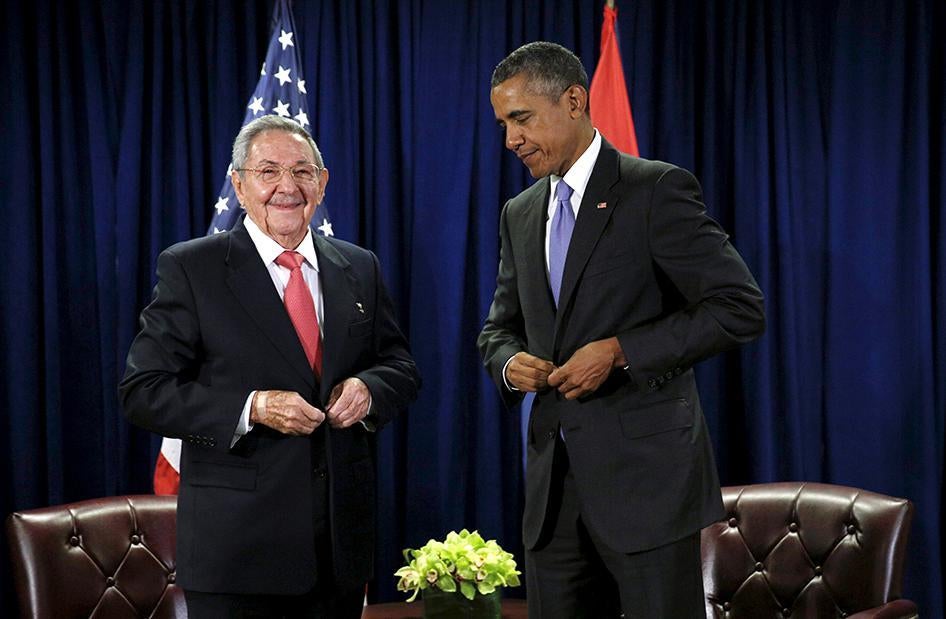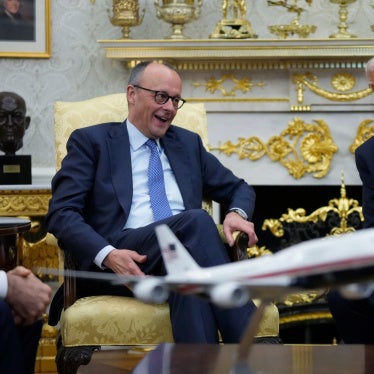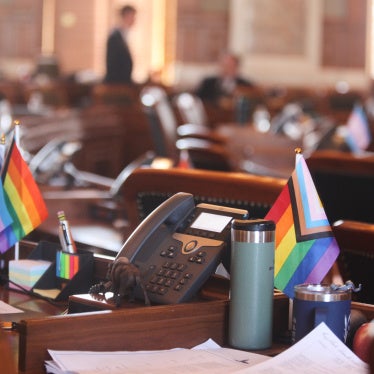(Washington, DC) – United States President Barack Obama should call for concrete measures to end systematic repression in Cuba during his visit to Havana from March 20 to 22, 2016, Human Rights Watch said today.
President Obama is expected to meet with both President Raul Castro and government critics, address Cubans live on state television, and attend an exhibition baseball game between the Cuban national team and the Tampa Bay Rays, presumably with President Castro. Announcing the trip on February 18, President Obama said he planned to “speak candidly about our serious differences with the Cuban government, including on democracy and human rights.” He also said he expected to have fun.
“Obama is absolutely right to promote engagement, but not as an end in itself,” said José Miguel Vivanco, Americas director at Human Rights Watch. “His message on human rights needs to be forceful and specific, or the trip may be remembered by Cubans who have suffered half a century of repression as little more than bonding over baseball.”
His message on human rights needs to be forceful and specific, or the trip may be remembered by Cubans who have suffered half a century of repression as little more than bonding over baseball.
José Miguel Vivanco
Americas director
The human rights situation in Cuba has remained largely unchanged since December 2014, when Presidents Obama and Castro announced an agreement to normalize diplomatic relations. As part of the agreement, Cuba made a commitment to release 53 political prisoners and to allow fact-finding visits to the island by the International Committee of the Red Cross and United Nations human rights monitors. The prisoner release occurred, but the visits by international monitors have not.
Despite a reduction in the number of political prisoners in recent years, the repressive laws that allow the government to lock people up for speaking their minds remain on the books. Moreover, the government increasingly relies on arbitrary, short-term detention to keep people from participating in peaceful marches and meetings. During Pope Francis’s visit to the island in September 2015, police detained between 100 and 150 dissidents. The Cuban Commission for Human Rights and National Reconciliation, an independent human rights group, reported more than 8,500 cases of arbitrary detention in 2015, and more than 2,500 in the first two months of 2016.
The Castro government controls most Cuban media. While a small but growing number of independent journalists and bloggers are active online, the government blocks access to some of their websites, and subjects some of those who publish information critical of the government to smear campaigns and arbitrary arrests. The government increased Internet access in 2015 by opening hot spots in parks and city boulevards nationwide, but Cubans are not able to access content that has been censored by the government.
“Important progress in a few areas has been made in recent years, such as increased freedom to travel and broader internet access, but the country’s repressive system remains firmly in place,” Vivanco said. “Obama should press Castro to begin dismantling that system by unblocking websites, ending arbitrary detention, and fulfilling the government’s commitment to allow visits by international human rights monitors.”
By rejecting the US policy of embargo and isolation, President Obama has removed one of the Cuban government’s main pretexts for repressive rule, and one of the biggest obstacles to mobilizing international pressure on Cuba to change. Engagement makes it harder for Cuba to paint the victims of its repression as agents of US aggression.
International pressure on the Cuban government is still crucial, Human Rights Watch said. To be most effective, pressure should come not from the US alone, but rather as part of a multilateral effort, ideally involving governments in the region that may now be more willing to criticize Cuba.
After leaving Havana, President Obama will travel to Argentina, where he will meet with President Mauricio Macri, whose three-month-old administration has been vocal on human rights in the region.
“Through his engagement policy, President Obama has created an unprecedented opportunity to support the efforts of Cubans seeking to exercise their basic rights,” Vivanco said. “He should seize it – in Havana by urging real reforms, and in Buenos Aires by starting to rally international pressure on Castro to deliver.”







